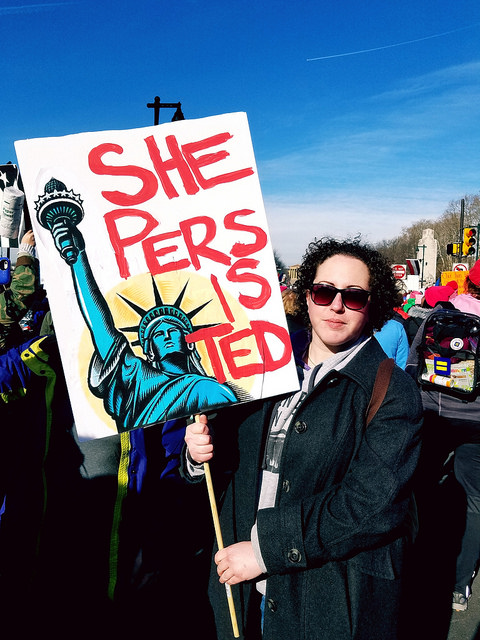
Since the 2016 presidential election, the gulf between the political left and right has become increasingly dramatic. Issues of gender equality often take center stage in these political debates. In a recent New York Times article, sociologists looked at how the #MeToo movement — focused on sexual harassment and assault — may affect that divide in future elections.
Many researchers believe the movement will increase contentions between the two sides. Some think it could push less-active voting groups, like young women, to the left and ensure more votes for the Democratic party. However, other sociologists like Musa al-Gharbi believe ideological separation will do more harm than good. He says,
“Progressives have done a great job framing racial inequality, feminism and LGBTQ rights as part of the same basic struggle. However, this association works both ways. Accusations of misogyny, for instance, are often heard in the context of a fundamentally anti-white, anti-Christian culture war — a zero-sum campaign waged against ordinary hard-working Americans by condescending and politically-correct liberal elites.”
In other words, organizing political campaigns around the movement likely will alienate some voters. Research from Joanna Pepin and David Cotter finds evidence of a backlash against the #MeToo movement in recent survey data. Cotter writes,
“We can already see the beginnings of a backlash against #MeToo. There’s a large reservoir of gender traditionalism and misogyny as shown in the Trending towards Traditionalism paper — and it persists among youths so may be part of our social fabric for some time.”
Using gender inequality and sexual harassment as a motive for political organizing could prove successful. The #MeToo movement provides personal, relatable, and moving stories that could spur political change. However, views on gender are also deeply rooted in partisan identities, so support may not come as certainly as the Democrats hope. In order to be effective enough for a political victory, these tactics also need to appear inviting to new members, rather than divisive and polarizing.

Comments